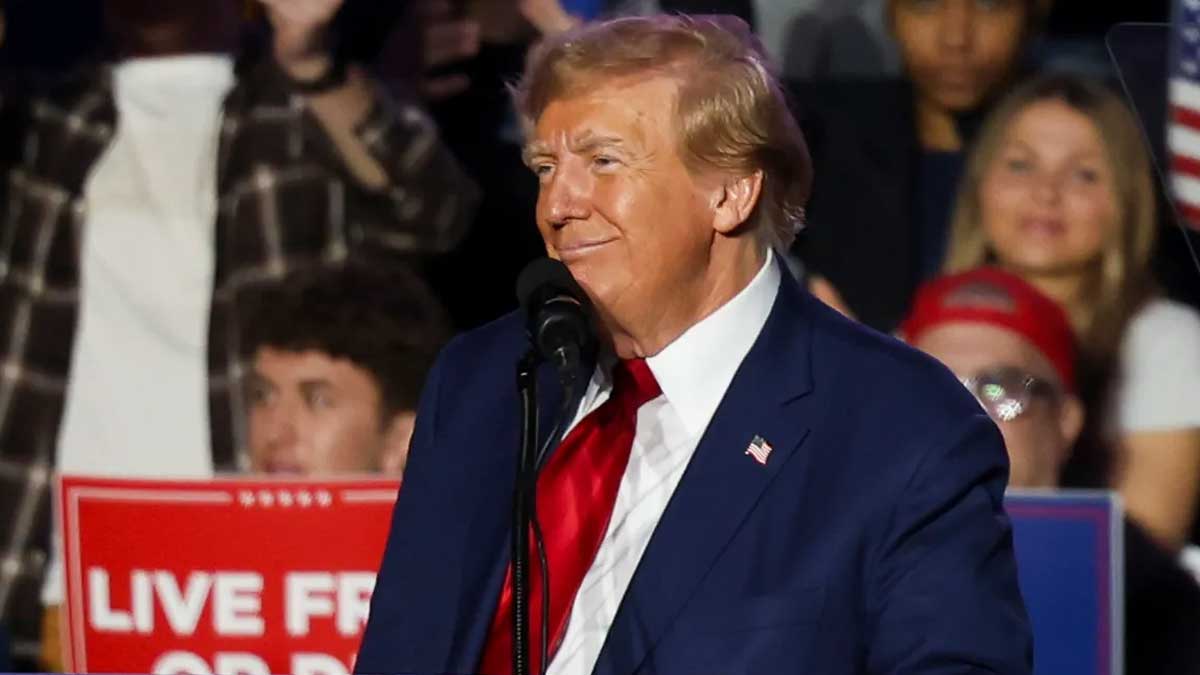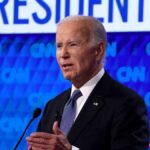- Home
- Billionaires
- Investing Newsletters
- 193CC 1000
- Article Layout 2
- Article Layout 3
- Article Layout 4
- Article Layout 5
- Article Layout 6
- Article Layout 7
- Article Layout 8
- Article Layout 9
- Article Layout 10
- Article Layout 11
- Article Layout 12
- Article Layout 13
- Article Layout 14
- Article Sidebar
- Post Format
- pages
- Archive Layouts
- Post Gallery
- Post Video Background
- Post Review
- Sponsored Post
- Leadership
- Business
- Money
- Small Business
- Innovation
- Shop
Recent Posts

A recent poll conducted by St. Anselm College reveals a shift in the New Hampshire political landscape, with former President Donald Trump now leading President Joe Biden by two percentage points. This shift follows a lackluster debate performance by Biden, raising concerns that the traditionally Democratic-leaning state could become a more competitive battleground in the November elections. The poll, which surveyed 1,700 registered voters over the course of Friday and Saturday, found that if the election were held today, Trump would secure 44% of the vote compared to Biden’s 42%. Additionally, 4% of respondents expressed support for Robert F. Kennedy Jr. This narrow lead for Trump is within the poll’s 2.3-point margin of error, indicating that the race remains highly competitive. The current results represent a significant change from six months ago when Biden enjoyed a 10-point lead over Trump in a prior St. Anselm poll, highlighting a notable erosion in Biden’s support in the state.
The poll also reveals that New Hampshire voters hold negative views of both candidates. Trump holds a slight advantage in favorability, with 42% of respondents rating him positively, compared to Biden’s 39%. This data underscores a broader trend of dissatisfaction among voters, as evidenced by the fact that 17% of respondents expressed an unfavorable opinion of both Trump and Biden. Among voters who are disenchanted with both candidates, Biden has a slight edge, with 30% of this group indicating they would support him, while only 13% would choose Trump. This suggests that while Trump may be slightly more favorable in a direct comparison, Biden could still draw support from those who view both major candidates unfavorably.
In the 2020 presidential election, Joe Biden won New Hampshire by a margin of seven points, receiving 52.7% of the vote compared to Donald Trump’s 45.4%. This year, however, New Hampshire is not classified as a battleground state by the Cook Political Report, which anticipates that the state’s four Electoral College votes will likely be awarded to Biden. Historically, New Hampshire has leaned Democratic in presidential elections over the past two decades, though often by narrower margins compared to its New England neighbors. The last Republican to carry New Hampshire was George W. Bush in 2000, making the state a challenging yet not insurmountable target for Trump.
The poll also highlights that voter sentiment remains highly volatile. Neil Levesque, Executive Director of the New Hampshire Institute of Politics, noted that the high level of dissatisfaction among voters—demonstrated by the 17% who have an unfavorable view of both candidates—suggests that the race could remain fluid and unpredictable until the election’s final moments. This volatility is further illustrated by the fact that 19% of respondents who were aware of the recent debate said it had influenced their voting intentions. Despite a majority of New Hampshire voters (54%) believing that Trump won the debate, 39% felt that neither candidate performed well, and only 6% thought Biden emerged as the debate’s victor.
The contest between Biden and Trump is shaping up to be a fiercely contested rematch, with Biden’s debate performance last week drawing significant scrutiny and raising questions about his ability to secure a second term or defeat Trump. Despite calls for Biden to consider withdrawing from the race, he has defended his performance, acknowledging a decline in his debating skills but emphasizing his commitment to honesty—a contrast he draws with Trump. Throughout his campaign, Biden has focused on framing Trump as a threat to democracy, particularly due to Trump’s role in the January 6, 2021 Capitol riot, and has emphasized issues such as abortion rights and democratic integrity. Trump, on the other hand, has centered his campaign around his legal issues, which he characterizes as “election interference” by Biden, though this claim lacks substantiation.
As the election approaches, the dynamics in New Hampshire underscore the competitive nature of the race and the potential for significant shifts in voter sentiment. With both candidates facing challenges and the state’s role as a key indicator of broader electoral trends, New Hampshire’s outcome will be closely watched in the lead-up to November.
Recent Posts
Categories
- 193cc Digital Assets2
- 5G1
- Aerospace & Defense46
- AI37
- Arts3
- Banking & Insurance11
- Big Data3
- Billionaires449
- Boats & Planes1
- Business328
- Careers13
- Cars & Bikes76
- CEO Network1
- CFO Network17
- CHRO Network1
- CIO Network1
- Cloud10
- CMO Network18
- Commercial Real Estate7
- Consultant1
- Consumer Tech180
- CxO1
- Cybersecurity68
- Dining1
- Diversity, Equity & Inclusion4
- Education7
- Energy8
- Enterprise Tech29
- Events11
- Fintech1
- Food & Drink2
- Franchises1
- Freelance1
- Future Of Work2
- Games141
- GIG1
- Healthcare78
- Hollywood & Entertainment186
- Houses1
- Innovation42
- Investing2
- Investing Newsletters4
- Leadership65
- Lifestyle11
- Manufacturing1
- Markets20
- Media193
- Mobile phone1
- Money13
- Personal Finance2
- Policy567
- Real Estate1
- Research6
- Retail1
- Retirement1
- Small Business1
- SportsMoney33
- Style & Beauty1
- Success Income1
- Taxes2
- Travel10
- Uncategorized8
- Vices1
- Watches & Jewelry2
- world's billionaires418
Related Articles
Trump Moves $4B Stake in Truth Social Parent, Stock Drops 6%
Donald Trump recently transferred his 57% stake in Trump Media & Technology...
By 193cc Agency CouncilDecember 20, 2024House Rejects Trump-Backed Funding Bill, Shutdown Looms
The U.S. House of Representatives rejected a new government funding bill on...
By 193cc Agency CouncilDecember 20, 2024Trump Named Time’s Person of the Year for Second Time
On Thursday, Time magazine honored Donald Trump as its “Person of the...
By 193cc Agency CouncilDecember 12, 2024Meta Donates $1 Million to Trump’s Inaugural Fund
Meta, the parent company of Facebook and Instagram, has confirmed a $1...
By 193cc Agency CouncilDecember 12, 2024















Leave a comment